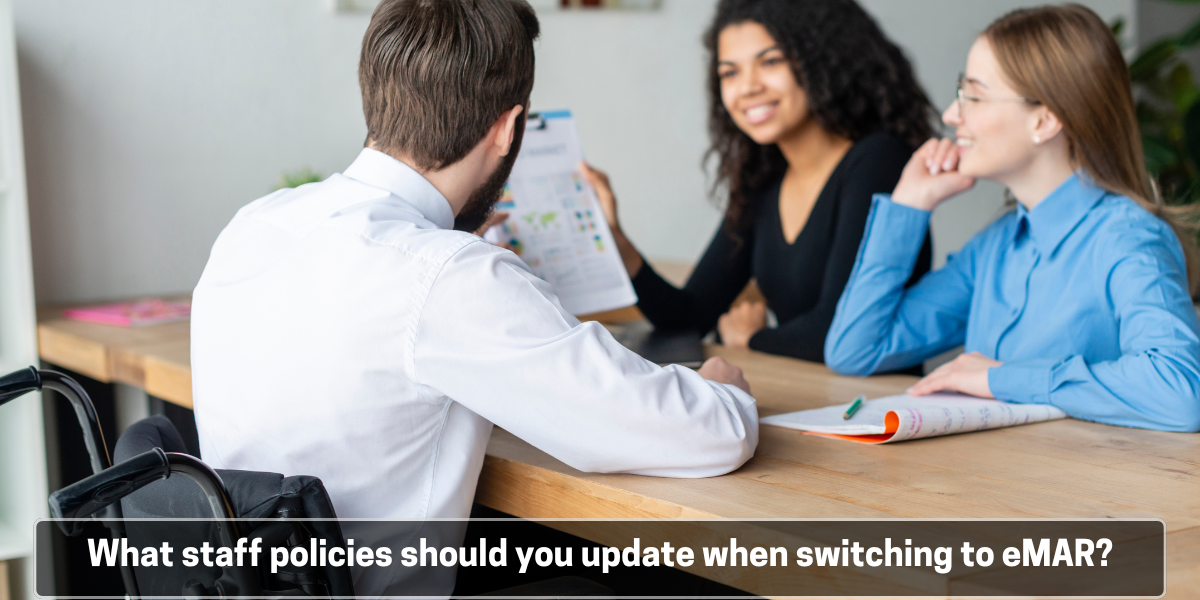Switching from paper-based medication records to an electronic medication administration record (eMAR) system is a big change for any care home. It improves safety, helps with audits, and supports better reporting. But to make the transition smooth, care home managers must do more than just install the software.
One key task is updating your staff policies. If your policies still refer to paper MAR charts or don’t include guidance on using eMAR, staff may get confused. Inspectors from the Care Quality Commission (CQC) will expect your policies to match what’s actually happening in your care home.
Here, we’ll look at which staff policies you should update—or create—when moving to electronic medication administration record software, based on what works in real care homes.
1. Medication administration policy
Your current policy probably describes how staff fill out paper MAR charts. That all needs to change. You’ll need to:
- Replace all mentions of paper MAR charts with instructions for using eMAR
- Explain how to handle late or missed doses using the system
- Include steps for responding to alerts or reminders from eMAR
- Add rules about using photos or other ID tools to confirm resident identity
Make sure this policy clearly shows what staff must do every time they give medications using eMAR.
2. Staff training and competency policy
Training becomes even more important when new technology is involved. Your training policy should now include:
- Required eMAR training for all staff who give medications
- A rule that no one uses the system alone until they’ve been trained and signed off
- How often do staff need refreshers?
- How will managers check whether staff are using the system properly?
You may also want to keep a list of “super users”—staff who can help others and answer questions.
3. Medication error and incident policy
eMAR makes it easier to track what went wrong when there’s a medication error. But your policy needs to explain how staff should report problems and how managers should investigate. Update it to include:
- Using system logs and reports during investigations
- How to check alerts and notes in the eMAR system?
- When and how to escalate errors or concerns?
This helps make sure all issues are dealt with in a fair and consistent way.
4. Data protection and privacy policy
Because eMAR stores sensitive information digitally, you must update your data protection policy. It should include:
- Strong password rules
- Not leaving screens open or tablets unattended
- Whether staff can access the system on personal devices (if allowed)?
- Staff responsibility for keeping resident information safe
These updates help protect resident data and meet UK GDPR requirements.
5. Record keeping and audit policy
You may already have a policy about keeping digital records. Now you need to include eMAR in that. Add sections that explain:
- How often you will audit medication records
- Who is responsible for checking the eMAR system?
- How long are records stored?
- What to do if the system fails and you need to use paper for a while?
This ensures staff and managers know what’s expected and how to keep things running smoothly.
Clear, updated policies help everyone work safely, meet standards, and provide better care—whether they’re using paper or a tablet.







